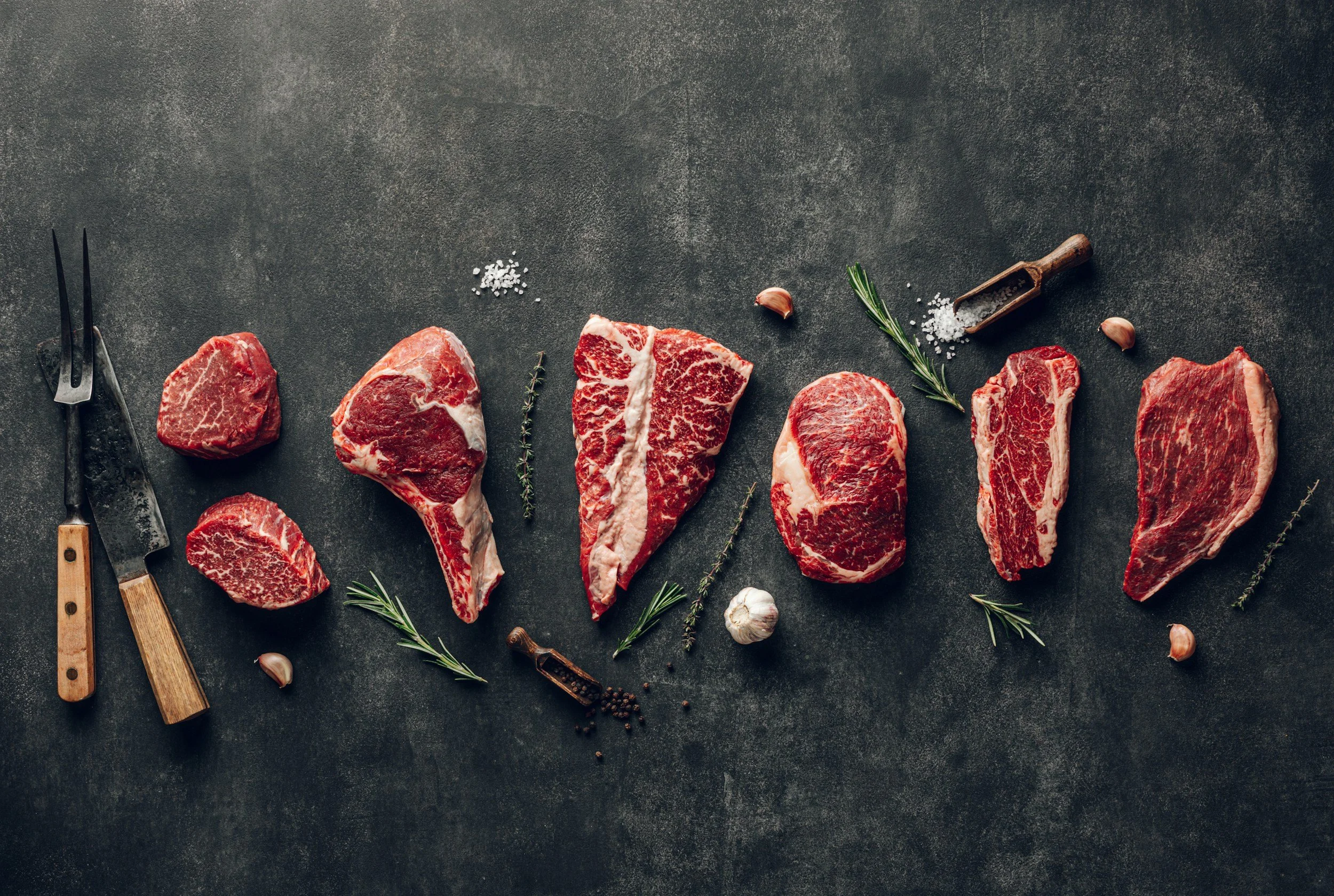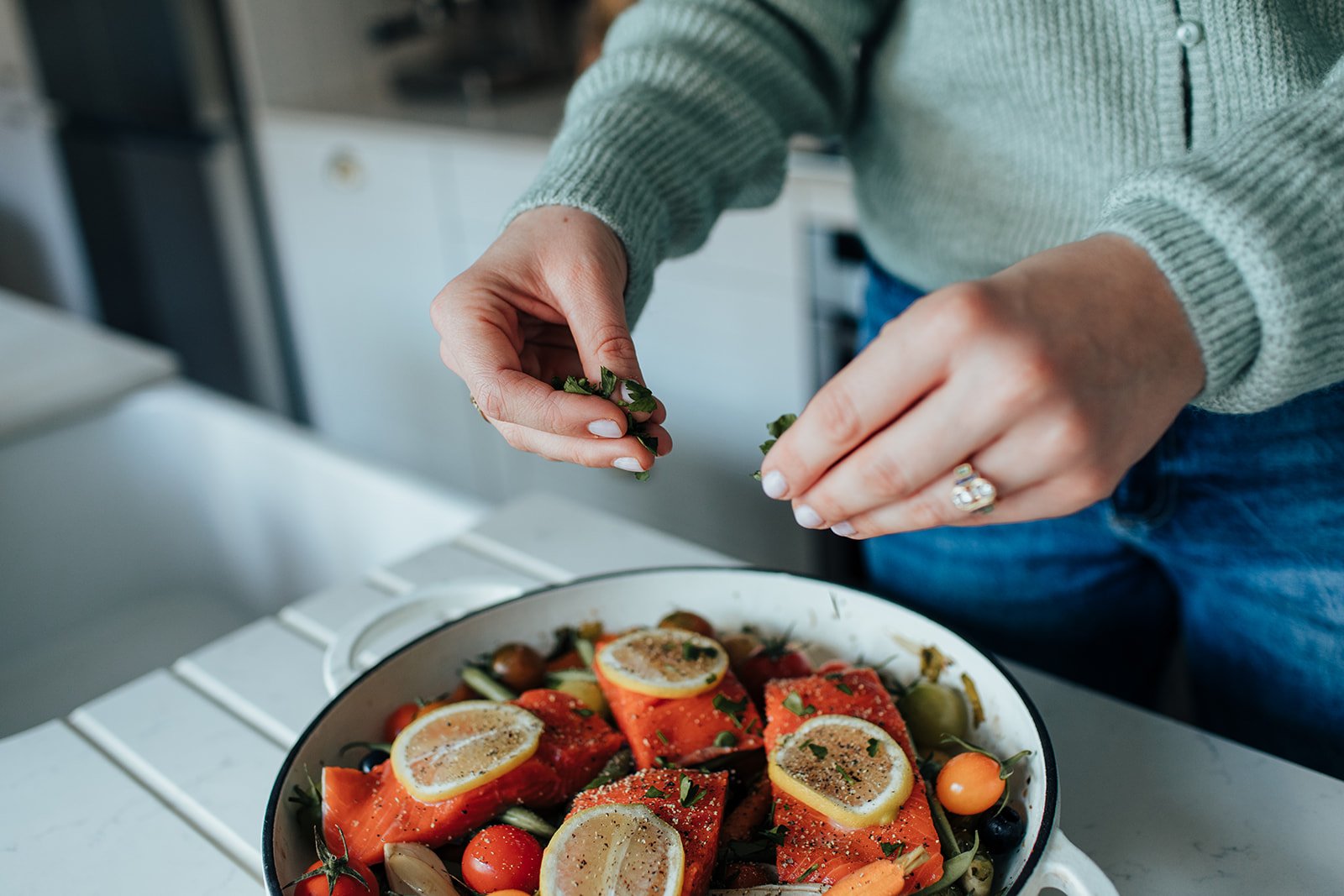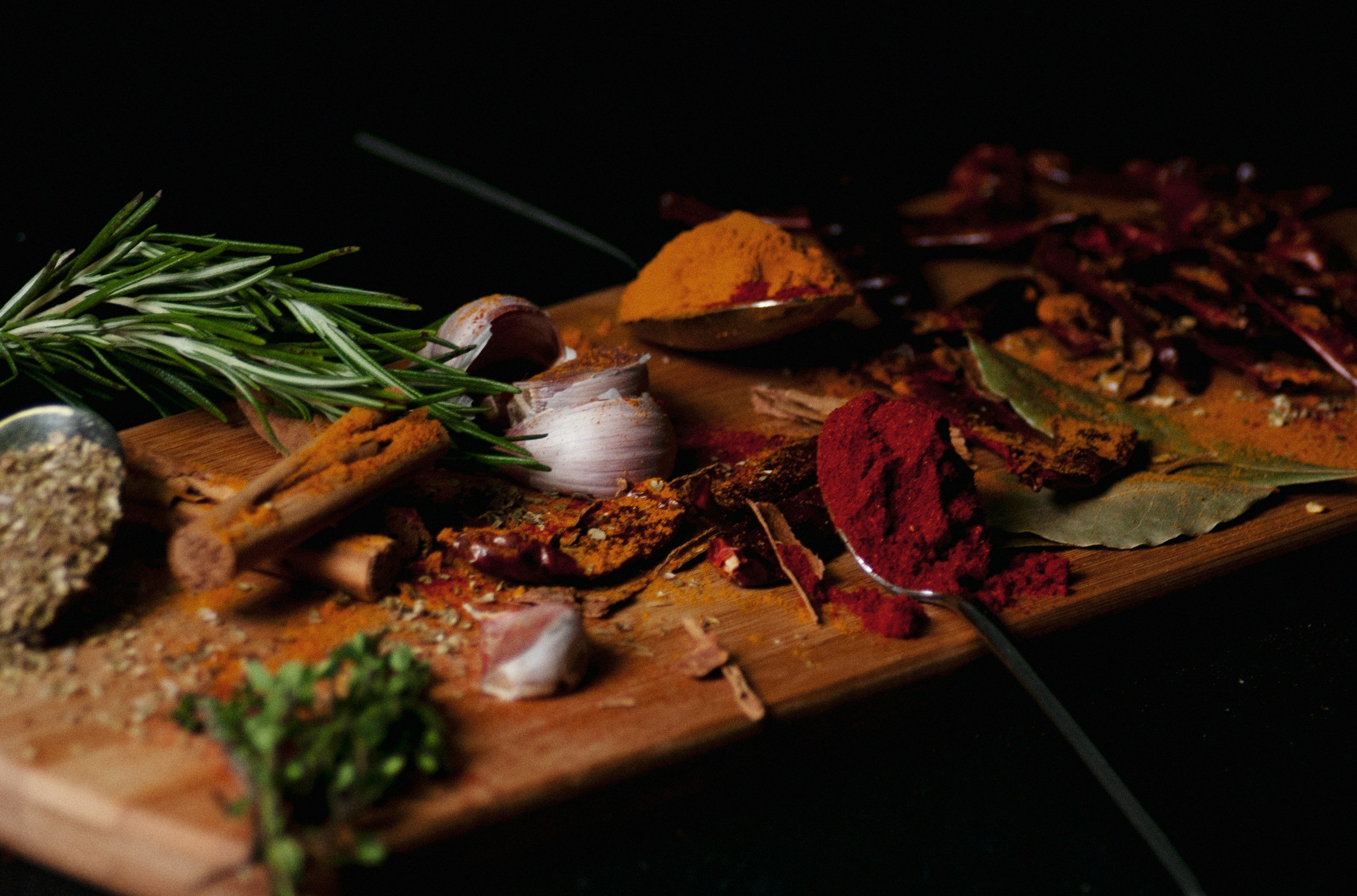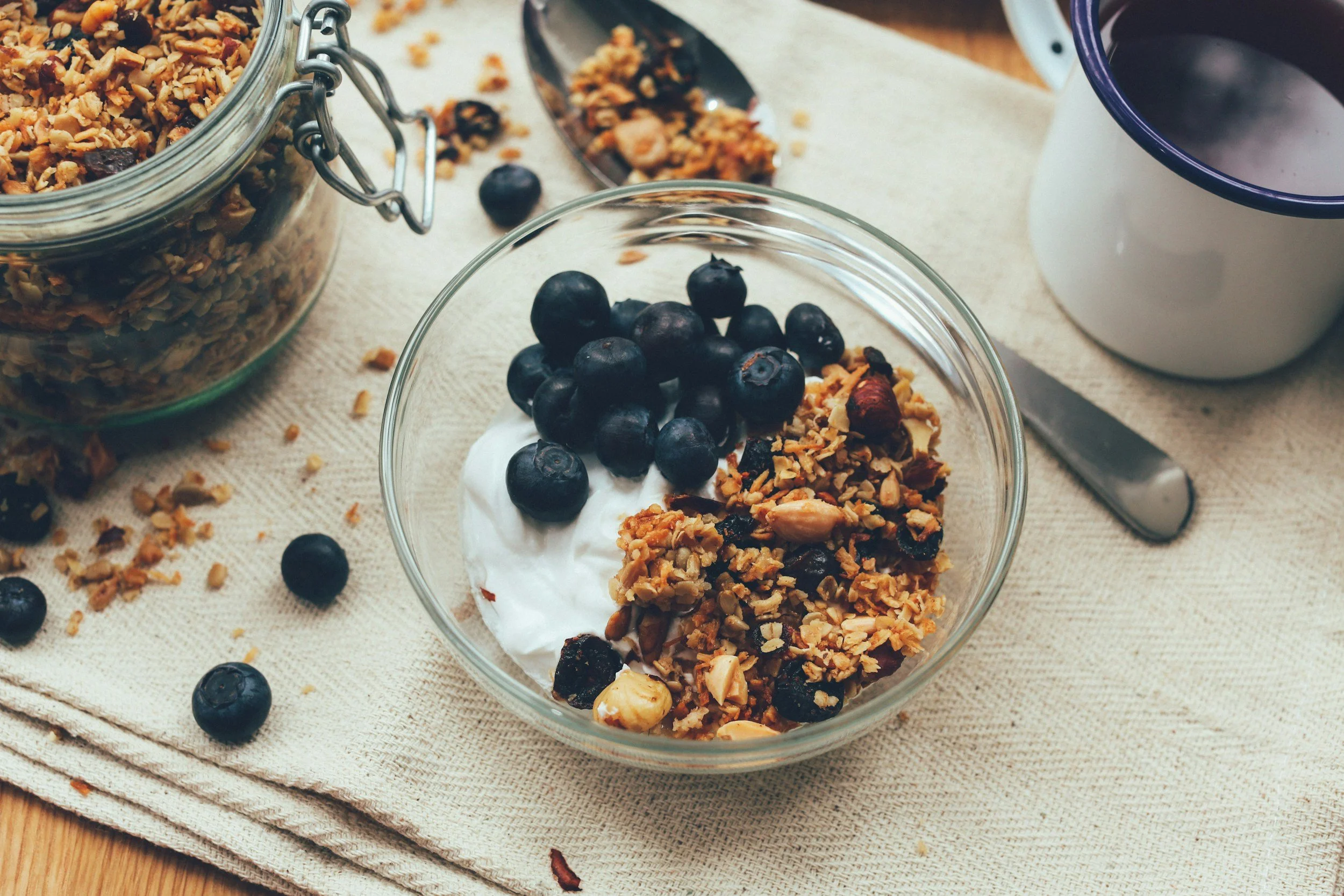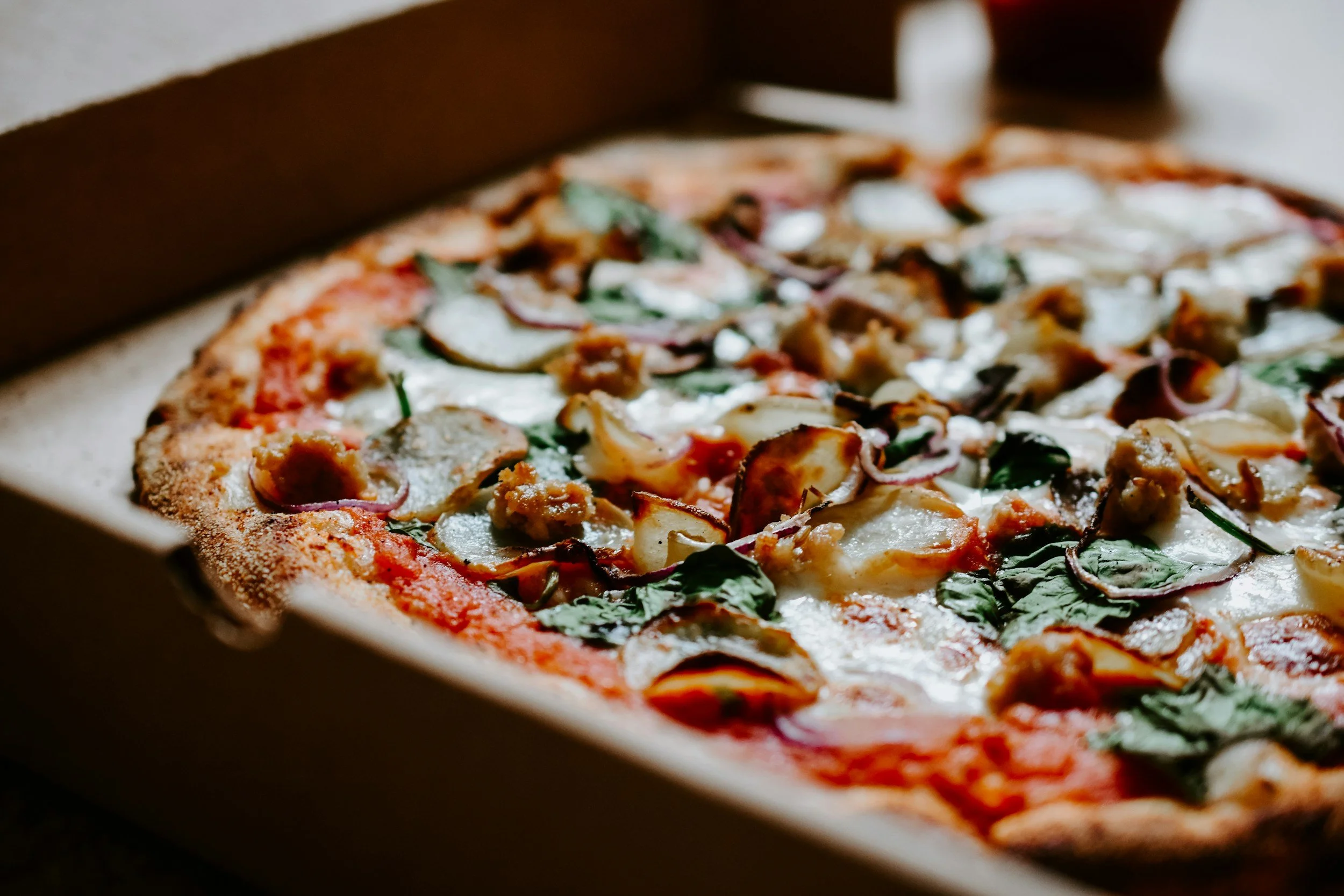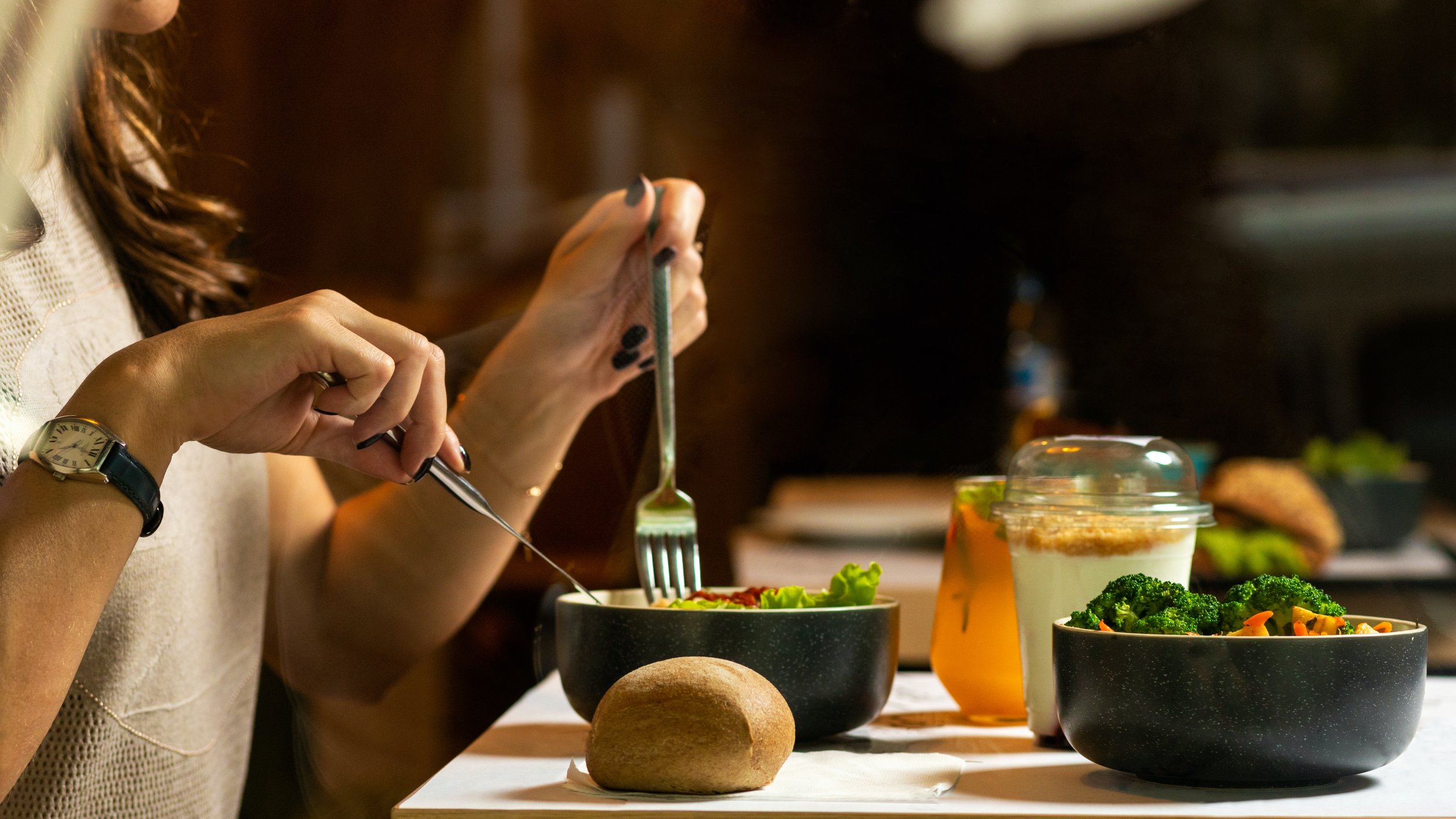Nourishing Your Body After Pregnancy Loss: Foods That Support Healing
Experiencing a miscarriage is profoundly difficult, and in the midst of grief and emotional healing, it's easy to overlook your physical recovery. Yet your body has been through a significant event and needs gentle, compassionate nourishment to heal. While no amount of "perfect" nutrition can take away the pain of loss, supporting your body with healing foods can help you feel stronger as you navigate this challenging time.
This isn't about restriction or "getting back to normal" quickly. It's about offering your body the nutrients it needs to recover from blood loss, support tissue repair, and stabilise the hormonal shifts happening within you. Whether your miscarriage was recent or a while ago, it's never too late to prioritise nourishing yourself.
Sadly, it is thought around 1 in 8 known pregnancies may result in loss, and 1 in 4 pregnancies, so tragically it can be very common. However, it is still often not spoken about and there is such limited support available in how best to recover and heal.
What Your Body Needs Right Now
After a miscarriage, your body is working hard to heal on multiple levels. You've likely experienced blood loss, which depletes iron stores and can leave you feeling exhausted and lightheaded. Your hormones are adjusting as pregnancy hormones drop and your menstrual cycle gradually returns. There may be physical inflammation and tissue repair happening, particularly if you required medical intervention.
Beyond the physical, stress hormones like cortisol often remain elevated and your nervous system is heightened as you process grief and loss. Your body needs extra energy and nutrients during this recovery period, even though your appetite might be affected by both physical discomfort and emotional distress. This is completely normal, and it's okay if eating or even thinking about what to eat, feels difficult right now.
Hopefully this article will provide a few ideas and key areas to support.
Foods For Recovery & Healing After Pregnancy Loss
Replenishing Iron After Blood Loss
One of the most important nutritional priorities after miscarriage is rebuilding your iron stores. Blood loss can significantly deplete iron levels, contributing to fatigue, brain fog, dizziness, and prolonged recovery. Low iron also impacts your immune function and can affect your fertility in the months ahead.
Heme iron sources
From animal foods are most easily absorbed by your body. Red meat like beef and lamb are particularly rich in iron, as are organ meats like chicken liver if you enjoy them. Sardines, salmon, and other fatty fish provide iron alongside omega-3 fatty acids that support healing. Even if you don't typically eat much red meat, this recovery period might be a time to include it several times weekly.
Plant-based iron sourceS (Non-haeme)
Include lentils, chickpeas, black beans, quinoa, and dark leafy greens like spinach and Swiss chard. Pumpkin seeds, hemp seeds, and dried apricots are also good options. While these contain non-heme iron that's less readily absorbed, you can significantly improve absorption by pairing them with vitamin C-rich foods like bell peppers, citrus fruits, tomatoes, or strawberries.
A simple, nourishing meal might be a lentil soup with tomatoes and spinach, or a grain bowl with quinoa, roasted chickpeas, red peppers, and a squeeze of lemon juice. If you're eating meat, a grass-fed beef burger with a side salad or a salmon fillet with steamed broccoli provides both iron and vitamin C naturally.
Consider avoiding tea and coffee with iron-rich meals, as compounds in these drinks can inhibit iron absorption. Calcium can also limit absorption. Save your morning coffee for between meals instead.
A note on iron supplementation
While it might be tempting to start taking iron supplements after blood loss, it's important to have your levels tested first rather than self-prescribing. Taking iron when you don't need it can cause constipation, nausea, and may interfere with the absorption of other important minerals like zinc and calcium. It can also have an inflammatory effect.
If your GP or healthcare provider has prescribed iron supplements following blood testing, do continue taking them as directed. However, it's worth having your levels rechecked after several weeks or months of supplementation to ensure you're taking the right dose and that your stores are replenishing appropriately. Too much iron over time can be just as problematic as too little. A simple blood test can guide whether supplementation is necessary or whether food sources alone can meet your needs during recovery. Equally, I sometimes work in clinic with women who have chronically depleted iron, it’s really important to get on top of the reasons for this, if this hasn’t been supported already.
Anti-Inflammatory Foods For Healing
Your body's natural inflammatory response is part of healing, but providing anti-inflammatory nutrients can support this process and help you feel more comfortable. Chronic inflammation can also impact hormonal balance and future fertility, making this an important area to address gently.
Omega-3 Fatty Acids
These are among the most powerful anti-inflammatory nutrients. Fatty fish like wild salmon, mackerel, sardines, and anchovies are excellent sources. Aim for two to three servings weekly if possible. If you're plant-based or don't enjoy fish, include ground flaxseeds in smoothies or oatmeal, add chia seeds to yogurt, and incorporate walnuts into snacks.
Colourful rainbow plant foods
These provide antioxidants that combat inflammation. Berries, especially blueberries, blackberries, and raspberries, are particularly rich in anti-inflammatory compounds. Buy frozen packs when out of season and for ease (I like the brand PACK’D). Dark leafy greens like kale, rocket, and swiss or rainbow chard should be staples. Include a variety of colors: orange sweet potatoes, purple cabbage, red tomatoes, and yellow peppers all contain different beneficial compounds.
Herbs and spices
These add both flavor and anti-inflammatory benefits. Turmeric is particularly powerful when combined with black pepper, which enhances absorption. Add it to scrambled eggs, soups, or golden milk. Fresh ginger can be steeped in hot water for a soothing tea or added to stir-fries. Garlic, cinnamon, and rosemary are also excellent choices.
A simple anti-inflammatory meal might be a colorful Buddha bowl with roasted sweet potato, quinoa, massaged kale, avocado, and grilled salmon, drizzled with a turmeric-tahini dressing.
Prioritising Protein for Tissue Repair
Your body needs adequate protein to repair tissues and support recovery. Protein also helps stabilise blood sugar, which can prevent energy crashes and mood swings during an already difficult time.
Aim for 30g of protein at each meal. This might look like three eggs with vegetables, a palm-sized portion of chicken or fish, a generous serving of Greek yogurt, or a hearty bean chilli. Quality matters: choose organic or pasture-raised eggs, grass-fed meat when possible, and wild-caught fish.
If cooking feels overwhelming, keep it really simple. A rotisserie chicken from the store can be added to salads, soups, or grain bowls throughout the week. Hard-boiled eggs make easy snacks alongside fruit and nuts. Tinned fish like sardines or wild salmon can be mashed onto wholegrain crackers or tossed with pasta.
Protein-rich snacks between meals can help maintain your energy: a handful of almonds with an apple, hummus with vegetable sticks, Greek yogurt with berries, or a smoothie made with a quality protein powder, banana, spinach, and nut butter.
Supporting Your Hormonal Transition
As your body's pregnancy hormones decline and your cycle prepares to return, certain nutrients can support this transition and help ease symptoms like mood changes, sleep disruption, and fatigue.
B vitamins
These play crucial roles in hormone production, energy metabolism, and mood regulation. Folate is found in dark leafy greens, asparagus, broccoli, and legumes. Vitamin B6 comes from chicken, turkey, salmon, chickpeas, and bananas. B12 is primarily found in animal foods: eggs, dairy, meat, and fish. If you're plant-based, consider a supplement during recovery. If you haven’t had any recent blood tests, when you’re ready, it can be a worthwhile time to get a full blood panel including folate, B12, and iron markers - as these are all important for fertility.
Magnesium
This mineral supports over 300 enzymatic processes in your body, including hormone production and stress response. It also promotes better sleep, which is often disrupted after loss. Find magnesium in pumpkin seeds, almonds, cashews, dark chocolate, avocados, and leafy greens. A small square of dark chocolate with almond butter can be both comforting and nourishing.
Healthy fats
These are essential for hormone production since hormones are made from cholesterol. Include extra virgin olive oil, avocados, nuts, seeds, coconut oil, and fatty fish daily. These fats also help you absorb fat-soluble vitamins like vitamin A and D. There is never a good time for a low-fat diet when it comes to female hormones.
Blood sugar balance is particularly important for hormonal health. Try to combine protein, healthy fats, and fibre-rich carbohydrates at each meal to prevent spikes and crashes that can worsen mood and energy levels.
Foods That Comfort and Nourish Your Mood
During this time, it's important to honour both your physical and emotional needs. Restrictive eating or "perfect" nutrition isn't the goal, gentle nourishment is.
Certain foods naturally support mood and neurotransmitter production. Tryptophan, found in turkey, chicken, eggs, cheese, nuts, and seeds, is a precursor to serotonin, your feel-good neurotransmitter. The omega-3 fats mentioned earlier also play vital roles in brain health and emotional wellbeing.
comfort foods
There's also space for true comfort foods during grief. If warm soup soothes you, make a nourishing bone broth with vegetables and rice. If pasta brings comfort, enjoy it with a tomato sauce packed with vegetables and a side of protein. If you just want ice-cream, pizza, or a damn good brownie, honour that - don’t beat yourself up, just see where you can and feel ready to make room for some nutrient dense foods around it.
Hydration
Stay hydrated, as even mild dehydration can worsen fatigue or symptoms like constipation. If you have been on any medications or gone through surgery, lots of hydration and high fibre foods can really help to keep the bowels regular. Remember soups, stews, broths can all add to overall hydration. Herbal teas like chamomile, peppermint, or rooibos can be soothing. If plain water feels boring, add cucumber slices, berries, or fresh mint.
Most importantly, listen to your body. Some days you might have more appetite than others. Some days cooking feels manageable; other days you need simple, prepared foods. All of this is okay.
What to Limit During Recovery
While I believe in a non-restrictive approach, there are a few things worth being aware of that if possible are best moderated during initial recovery.
Alcohol
In honesty, this is best avoided for at least the first few weeks, as it can interfere with healing, disrupt sleep, and affect nutrient optimisation and absorption - particularly B vitamins. Although it can feel good at the time, we all know it can also worsen mood in the days following consumption.
Excessive caffeine
For some this may worsen anxiety, disrupt sleep, and interfere with iron absorption. If you enjoy coffee or tea, limit intake to one or two cups daily, ideally away from meals if trying to optimise iron.
Highly processed foods
Particularly those that are low in nutrients and high in sugar and unhealthy fats can contribute to inflammation and blood sugar imbalances. This doesn't mean never having these foods, but during recovery, your body benefits more from nutrient-dense choices.
The most important thing to take aware from this whole article - This isn't about perfection or adding stress through rigid rules. It's about providing you with some knowledge and ideas of gently prioritising foods that actively support your healing.
Your Path Forward
Recovery after miscarriage is deeply individual. Some bodies heal quickly; others need more time. Some people feel hungry and drawn to nourishing foods; others struggle with appetite or certain cravings for weeks. Wherever you are is exactly where you need to be.
Consider asking loved ones for support with meals if you're struggling to cook. Many people want to help but don't know how, providing nourishing meals is tangible support. Batch cooking on days when you have energy, or keeping simple staples on hand, can ease the burden on harder days.
If you're experiencing prolonged heavy bleeding, severe fatigue that isn't improving, or significant changes in appetite lasting more than a few weeks, please reach out to your doctor.
Your body carried a pregnancy and deserves deep care and respect as it heals. Nourishing yourself isn't about "bouncing back", it's about honouring what you've been through and supporting yourself with compassion.
If you'd like personalised support as you navigate nutrition after loss or begin preparing for a future pregnancy, I'm here to help. This article details some Recovery is a journey, and you don't have to walk it alone.
Charities and support groups:
https://theworstgirlgangever.co.uk/
https://www.miscarriageassociation.org.uk/
https://www.tommys.org/baby-loss-support
3 Day Recovery Meal Ideas
These are suggestions, not prescriptions. Adjust based on your preferences and what feels manageable.
Day 1:
Breakfast: Scrambled eggs with turrmeric and black pepper, served with spinach and avocado on sourdough toast
Lunch: Lentil soup with crusty bread and a side salad with olive oil dressing
Dinner: Grilled salmon with roasted sweet potato and steamed broccoli
Snacks: Authentic Greek yogurt with berries, handful of almonds and flaxseed
Day 2:
Breakfast: Overnight oats with chia seeds, banana, walnuts, and cinnamon, topped with Greek yoghurt
Lunch: Quinoa bowl with chickpeas, rainbow roasted vegetables, tahini dressing
Dinner: Grass-fed beef stir-fry with colourful peppers, swiss chard, over brown rice
Snacks: Hummus with carrot sticks, dark chocolate square with almond butter or a handful of nuts
Day 3:
Breakfast: Smoothie with protein powder, spinach, berries, flaxseed, almond butter
Lunch: Sardines on wholegrain crackers with cucumber, tomato, and avocado
Dinner: Roasted chicken thighs with leafy green salad, avocado, sundried tomatoes and quinoa
Snacks: Apple with almond butter, hard-boiled eggs


